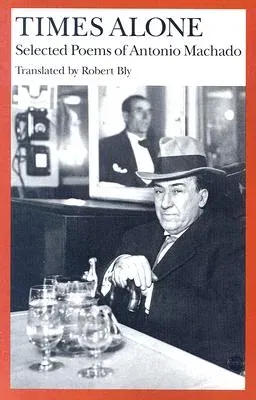A new book of poetry translation that enhances the ordinary
Antonio Machado, a school teacher and philosopher and one of Spain's
foremost poets of the twentieth century, writes of the mountains, the
skies, the farms and the sentiments of his homeland clearly and without
narcissism: "Just as before, I'm interested/in water held in;/ but now
water in the living/rock of my chest." "Machado has vowed not to soar
too much; he wants to 'go down to the hells' or stick to the ordinary,"
Robert Bly writes in his introduction. He brings to the ordinary--to
time, to landscape and stony earth, to bean fields and cities, to events
and dreams--magical sound that conveys order, penetrating sight and
attention. "The poems written while we are awake...are more original and
more beautiful, and sometimes more wild than those made from dreams,"
Machado said.
In the newspapers before and during the Spanish Civil War, he wrote of
political and moral issues, and, in 1939, fled from Franco's army into
the Pyrenees, dying in exile a month later. When in 1966 a bronze bust
of Machado was to be unveiled in a town here he had taught school,
thousands of people came in pilgrimage only to find the Civil Guard with
clubs and submachine guns blocking their way.
This selection of Machado's poetry, beautifully translated by Bly,
begins with the Spanish master's first book, Times Alone, Passageways in
the House, and Other Poems (1903), and follows his work to the poems
published after his death: Poems from the Civil War (written during
1936 - 1939).

